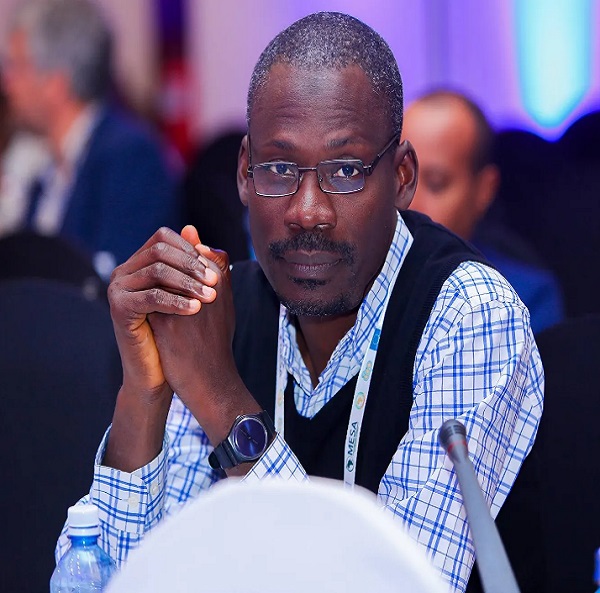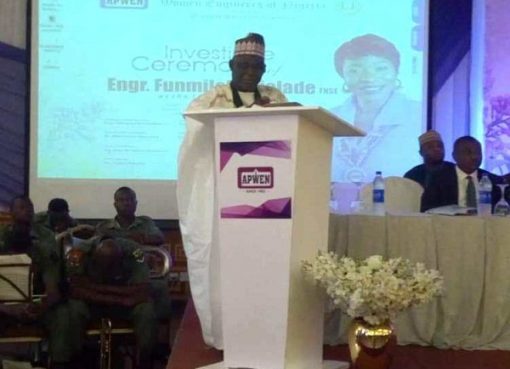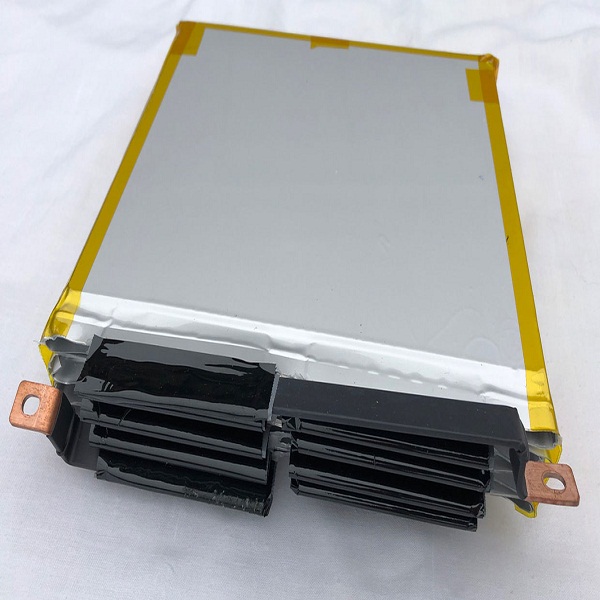ON February 25, 2021, President Muhammadu Buhari nominated Dr. Ahmad Halilu Shaba as the substantive Director General of the National Space Research and Development Agency, NASRDA. The nomination letter was read at Plenary on March 2, 2021 by the Senate president, Senator Ahmad Lawan, for confirmation by the Senate. The nomination of Dr. Shaba by the President is pursuant to Sections 14(1) and (2) of the National Space Research and Development Agency Act 2010.
Dr. Shaba, a seasoned scholar and technocrat, has over 21 years post-doctoral research work in the field of Remote Sensing and has extensive knowledge in Space Technology, Management, and Safety. Shaba first joined the public service in 1989 and commenced his career at the National Population Commission (1989-2001) before joining the Federal University of Technology, Minna (2001-2006) where he became lecturer and later rose to Deputy Dean of Student Affairs.
From there, he moved to the National Emergency Management Agency, NEMA, as Deputy Director (Planning and Research) and joined NASRDA in 2009 as Director, Strategic Space Applications, where he was later appointed Acting Director General in 2019.
Dr. Shaba is coming on board at a time a lot is expected from the agency in driving the development of the country. As many Nigerians are aware, Nigeria is signatory to the United Nations Sustainable Development Goals, SDGs, but not many are aware that the country cannot achieve the SDGs without an effective and efficient space agency. The NASRDA is central to the success or otherwise of Nigeria’s sustainable development goals and the agency is doing quite a lot in this regard even as it is expected to do more under the new director general whose pedigree and capacity to deliver has never been in doubt.
A few examples could suffice on what the agency has been doing and what it is expected to do to ensure the sustainable development of Nigeria. Sustainable development is defined as development that satisfies the needs of the present without compromising the ability of future generations to satisfy theirs. In order to be sustainable, development must combine three main elements: fairness, protection of the environment and economic efficiency.
Space technology innovation for sustainable development involves three key approaches. These are: addressing basic needs through innovation and capacity building, including poverty reduction, agriculture, urban planning resource management and disaster risk reduction; promoting innovation and innovative approaches which will lead to sustainable economic growth and job creation; and promoting global and regional cooperation for better management of global challenges together by finding global pictures and information.
The use of space science and technology for the attainment of sustainable development and the need to strengthen the outer space legal framework is of utmost importance, especially in developing countries. Outer space is described as mankind’s common heritage, that developing countries must be allowed equal access. The rational and peaceful uses of outer space provide a powerful tool for furthering the well-being of humanity and the earth’s environment. Space technology and applications are fundamental tools for actualising sustainable development throughout the world, especially for a developing country like Nigeria.
Space technology is being used to enhance data and information that will help decision makers formulate knowledgeable, timely decision on possible intervention and type of action required for socio-economic growth that meets the basic needs of people, such as food, water, sanitation, health, housing and transportation. Take, for instance, SDG 3 which is to “ensure healthy lives and promote well-being for all at all ages”.
Space technology is vital to its actualisation. The role space technology plays in ensuring healthy lives and well-being include telemedicine for rural population and medical practitioners in remote locations. In the area of disease prediction, satellites help to assess the risk of epidemics (e.g. Ebola outbreak) and environmental monitoring and analysis for health care and hygiene including the mapping of deadly mosquitoes.
Already NASRDA is working on project with Malaria Eradication Programme of the Ministry of Health to produce malaria map for the areas that are prone to mosquito breeding. NASRDA’s efforts on actualisation of SDG 3 also include telemedicine programme. The SDG 4 is to: “Ensure inclusive and equitable quality education and promote lifelong learning opportunities for all.” Space technology is presently being used to enhance satellite data and information exchange for establishing an operational system for tele-education services for e-learning in rural areas and development of multi-media materials for interactive tele-education. It is providing tele-learning tools for educators.
NASRDA’s efforts in the actualisation of SDG 4 is also done through supporting nationwide research and learning. This it has done through the provision of laboratories- 21 GIS Labs have been established in 21 Nigerian universities and polytechnics, building their capacity to use NigeriaSat-2 and NigeriaSat-X satellite images. It has also been involved in training of over 1000 Nigerians across MDAs and donation of satellite imageries. The agency has also donated images for research to several Nigerian tertiary institutions worth N3billion.
In tele-education, the agency has a pilot scheme of 12 study centres located across the nation with a teaching administrative hub at the National Open University of Nigeria, NOUN, headquarters in Lagos. The network can enhance the delivery of lectures from the study centres, depending on where the resource persons are located. NASRDA’s efforts have also been felt in using space technology in mapping and monitoring of slum developments in Abuja using NigeriaSat-2. The dataset used in this study are NigeriaSat-2 and Spot 5 high-resolution satellite imagery.
The SDG 14 is to “conserve and sustainably use the oceans, seas and marine resources for sustainable development”. This goal is being pursued with remote sensing technologies and GIS for oceanography. It has greatly helped in marine ecosystems management, encouraging Nigeria to take an intelligent approach in managing resources found in its territorial seas. Vessel tracking from space is actualised through space technology.
Goal 15 of the SDGs is to “protect, restore and promote sustainable use of terrestrial ecosystems, sustainably manage forests, combat desertification and halt and reverse land degradation and halt biodiversity loss.” Space technologies are being used to monitor terrestrial ecosystems by looking at land cover change and keeping track of desertification and wildlife habitat. Monitoring forest degradation and deforestation.
Others include monitoring forest fires and tracking biodiversity. In line with SDG 17 which is to “strengthen the means of implementation and revitalise the global partnership for sustainable development”, NASRDA, on behalf of Nigeria, is a member of the Africa Leadership in Space Conference, ALC and plays major roles in space science and technology and innovation in Africa.
NASRDA is also a member of the African Resource Monitoring Satellite Constellation (N2 is the first satellite in the constellation). NASRDA is instrumental to the development of the African Space Policy. NASRDA is currently hosting the Regional Support Office of the United Nations platform for Space-based Information for Disaster Management and Emergency Response (West and Central Africa). The good news is that the new director general is well equipped to take the agency to the next level of space science breakthrough that would address development challenges facing the country.
The aforementioned responsibilities in sustainable development have been central to the functions of Dr Shaba at NASDRA as the Director Strategic Space Applications since 2009 when he joined NASDRA. His work at NASRDA has proven he is highly dedicated, which distinguishes him as an expert in knowledge of Space Application, Remote Sensing, acquisition and interpretation of satellite imageries and problem-solving techniques at the coveted National Space Research and Development Agency of Nigeria (NASRDA).
Dr Shaba’s nomination, which is best described as putting a round peg in a round hole, will be of immense benefit as both the country and the international community have benefitted from major research projects implemented and supervised by him in various areas such as the spatio-temporal assessment of climate and human induced impact of ecosystem degradation and water resources management using Remote Sensing Technique (the pilot study of Kainji Lake Area in Nigeria).
Also prominent amongst these projects is the United Nations-REDD Collaborative Programme on Reducing Emissions from Deforestation and Forest Degradation in developing countries using the famous Cross River State as a demonstration model (UN/NASRDA, the Strategic Space Applications Department collaboration project, 2014-2015) which was a resounding success story.
Some other symbolic projects implemented by him include the Dasymetric approach to Abuja population mapping and estimation, Erosion mapping and monitoring with space technology in South East and South-South Nigeria sponsored by the World Bank. The Crime mapping in Abuja Metropolis using GIS/RS technology. Dr Shaba has also played a great role in Developing real-time model for road safety measures using GIS/RS in Nigeria and the automation of population estimation using remote sensing /GIS techniques, among others.
With the profile and experience of Dr Shaba in Academia, Public Service, Remote Sensing, Technology and Space Applications, it is expected that the New Director General will use his wealth of experience in delivering the mandate of NASDRA effectively to provide solutions to a lot of the associated sustainable development issues beneficial to Nigerians through forging greater network of collaborations and partnerships with related agencies in Nigeria and the International Communities.
Source: Vanguard










